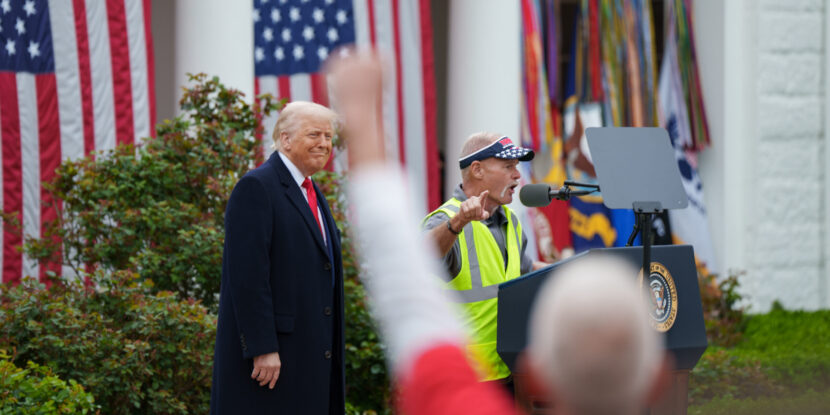
PULSE POINTS:
❓What Happened: The U.S. withdraws around 100 troops from Jasionka, Poland, a key weapons distribution center for Ukraine, handing control to European NATO forces.
👥 Who’s Involved: U.S. Pentagon, Polish Defense Ministry, NATO allies (Spain, Britain, Romania), and Ukraine’s military support network.
Your free, daily feed from The National Pulse.
📍 Where & When: Jasionka, Poland, near Ukraine’s border, announced April 8, 2025.
💬 Key Quote: “After three years at Jasionka, this is an opportunity to right-size our footprint and save American taxpayers tens of millions of dollars per year.” — Gen. Christopher Donahue
⚠️ Impact: Reduced U.S. presence saves cash while European allies pick up extra duties as Ukraine fights on.
IN FULL:
The U.S. has pulled approximately 100 troops from Jasionka, Poland, a critical logistics hub near Ukraine’s border that has been channeling weapons to the Ukrainian military since 2022. This move trims America’s role at a facility that has processed over 113,000 pallets of military aid—artillery shells, drones, and more—shifting primary responsibility to Polish forces and a mix of NATO troops from Spain, the United Kingdom, and Romania.
A small U.S. contingent will stay to oversee operations, but the Army’s 62nd Distribution Company, which ran the site, has withdrawn with its equipment, saving American taxpayers “tens of millions of dollars” annually, per General Christopher Donahue.
Gen. Donahue, the commanding general of U.S. Army Europe and Africa, stated, “After three years at Jasionka, this is an opportunity to right-size our footprint and save American taxpayers tens of millions of dollars per year.” The incumbent Trump administration, like the first Trump administration, has indicated that cutting back on foreign “forever wars” and pushing European NATO allies to pull their weight is a key strategic goal.
The hub, just 50 miles from Ukraine, will keep running under Polish command, with the Polish Defense Ministry vowing there will be no disruptions. The timing of the change—amid Ukraine’s ongoing need for supplies—underscores a pivot in which Europe shoulders more while America trims costs and commitments overseas.

PULSE POINTS:
❓What Happened: American workers are getting behind President Donald J. Trump’s tariff plan to help bring jobs back to America.
👥 Who’s Involved: President Trump, United Auto Workers, Steel Manufacturers Association, National Cattlemen’s Beef Association, Southern Shrimp Alliance, National Council of Textile Organizations, and various small business owners and industry leaders.
Your free, daily feed from The National Pulse.
📍 Where & When: Across the United States, April 7.
💬 Key Quote: “To see those plants close, one after another, and just sit idle and then fall into disrepair and collapse, they become abandoned buildings… I’m glad to see Donald Trump finally standing up saying he’s going to do something about it,” said retired auto worker Brian Pannebecker.
⚠️ Impact: The Trump tariffs receiving support from industry figures and working-class Americans signals renewed hope for domestic manufacturing and economic growth, despite outcry from financiers.
IN FULL:
President Donald J. Trump’s robust tariff initiative, aimed at countering the impact globalization has had on American industries, is being praised by workers across America. The new direction is garnering support from several industry groups, including the United Auto Workers, Steel Manufacturers Association, and the National Cattlemen’s Beef Association, as well as local business leaders.
Support from American industry is evident across the nation. Illinois cattle farmer Alan Adams highlighted the long-standing issues with foreign tariffs, particularly in beef, noting, “We’d like the same chance to sell the great taste of American beef.”
Acy Cooper, a fourth-generation shrimp producer in Louisiana, underscored the importance of strong domestic production for national resilience, saying, “We’ve been suffering for over 20 years … this country can’t feed itself, this country can’t sustain its own way of life. If we get into a war with China, one of our big importers … how are we going to feed the people of this country? … It has to come [from] within this country.”
In Michigan, retired auto worker Brian Pannebecker said, “To see those plants close, one after another, and just sit idle and then fall into disrepair and collapse, they become abandoned buildings… I’m glad to see Donald Trump finally standing up saying he’s going to do something about it.”
Further support comes from business leaders such as Brian Riley, CEO at Guardian Bikes, who perceives Trump’s trade policy as a welcome shift away from a status quo that “prioritized offshoring production and cheap consumption.”
President Trump is pushing forward with his plan, emphasizing his desire to bolster American industries, create fair trade opportunities, and ultimately enhance the livelihoods of American workers. He urged Americans to stay strong through the market jitters attributed to the tariffs on Monday morning, writing on his Truth Social platform, “The United States has a chance to do something that should have been done DECADES AGO. Don’t be Weak! Don’t be Stupid! Don’t be a PANICAN (A new party based on Weak and Stupid people!).”
show less

 2 months ago
5
2 months ago
5








 English (US) ·
English (US) ·